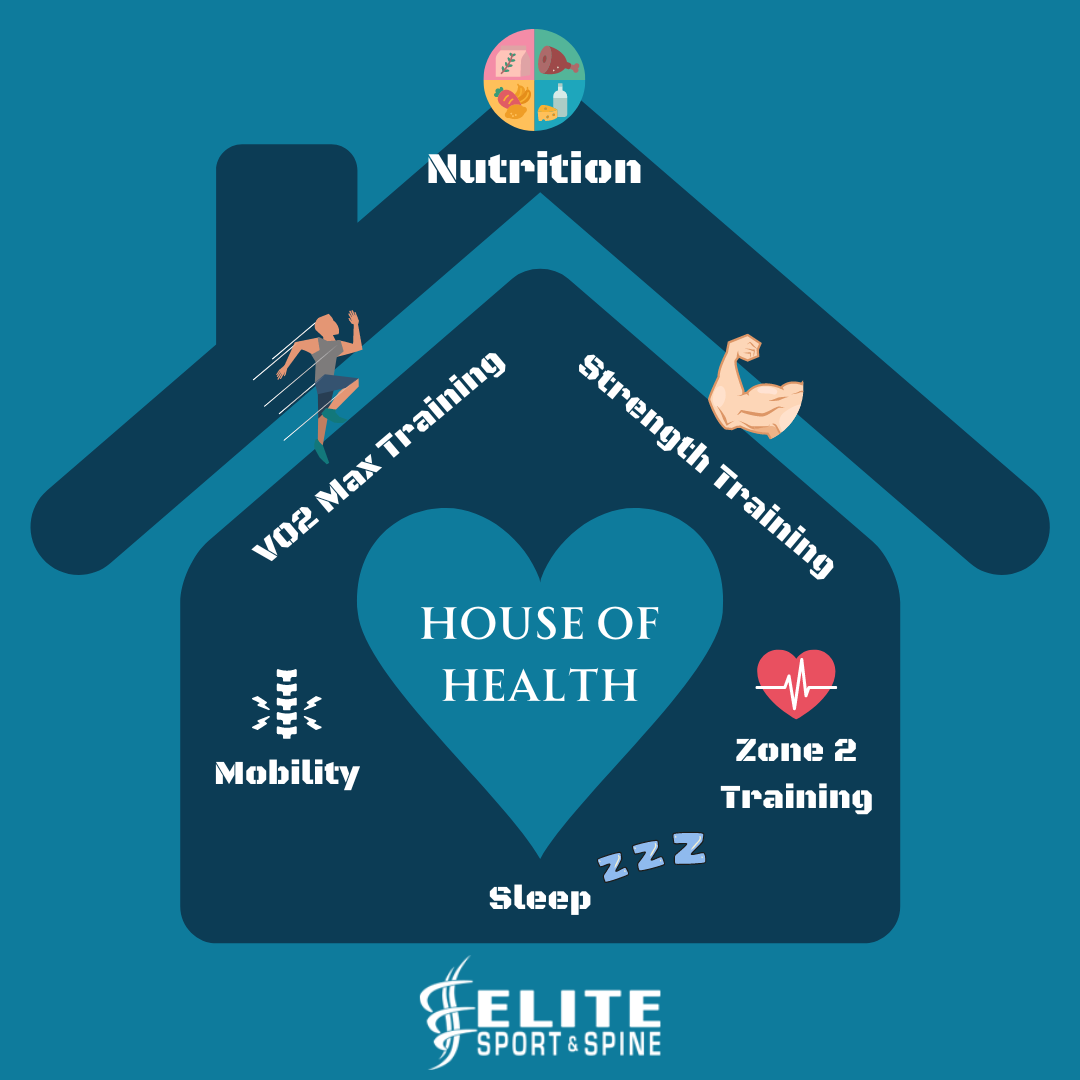Sleep: The Foundation to Your House of Health

February 3, 2024
Sleep is a fundamental aspect of human existence, playing a crucial role in overall health and well-being. In today’s fast-paced world, where priorities often shift towards work, social engagements, and technology, the significance of quality rest is frequently underestimated. As we continue to explore our House of Health, we aim to shed light on the importance of sleep, supported by research findings.
Restorative Functions
Quality sleep is essential for the body’s restoration and repair processes. During a night of rest, the body releases growth hormone, repairs tissues, and strengthens the immune system. According to a study published in the Journal of Experimental Medicine (Walker, 2020), specific immune cells are more active during deep sleep, highlighting the connection to immune function.
Mental Benefits of Sleep
Sleep plays a vital role in cognitive functions, including memory consolidation and learning. Research from the National Institutes of Health indicates that rest is crucial for memory retention and problem-solving skills. Enhanced creativity, decision-making, and overall cognitive performance are all documented mental benefits.
The impact on mental health truly cannot be overstated. Sleep deprivation has been linked to an increased risk of mood disorders such as depression and anxiety. Research published in the Journal of Neuroscience highlights the bidirectional relationship between sleep and mental health, emphasizing the importance of sufficient rest for emotional well-being.
Physical Benefits of Sleep
Quality rest plays a major role in metabolic health and weight management. Deprivation is associated with disruptions in hormonal regulation. This leads to increased appetite and a higher risk of obesity. A study in the American Journal of Clinical Nutrition found that inadequate sleep alters the levels of hormones that regulate hunger. This alteration potentially contributes to weight gain.
In addition, chronic deficiency has been linked to an increased risk of cardiovascular diseases. The American Heart Association emphasizes the importance of rest. It is vital to maintaining cardiovascular health, as sleep influences blood pressure, inflammation, and overall heart function.
Longevity and Overall Well-being
Several studies, including a research review, have suggested a correlation between duration and overall mortality. Individuals consistently getting an optimal amount of sleep tend to live longer and experience better overall well-being.
Now that we’ve explored why it’s so important, here are some tips to help optimize your quality of sleep.
- Establish a Routine: Aim for a consistent sleep schedule by going to bed and waking up at the same time every day, even on weekends. This helps regulate your body’s internal clock.
- Create a Relaxing Environment: Make your bedroom a comfortable and calming space. Consider using blackout curtains, reducing noise, and keeping the room cool for an optimal sleep environment.
- Limit Screen Time: The blue light emitted by screens on phones, tablets, and computers can interfere with the production of the sleep hormone melatonin. Limit screen time at least an hour before bedtime.
- Mindfulness and Relaxation Techniques: Practice relaxation techniques such as deep breathing, meditation, or gentle stretching before bedtime to calm the mind and promote restful sleep.
- Watch Your Diet: Avoid heavy meals, caffeine, and alcohol close to bedtime. These substances can disrupt sleep patterns and affect the quality of your rest.
Sleep is definitely the foundation of a healthy and fulfilling life. The research discussed above underscores the far-reaching impacts of sleep on various aspects of physical and mental health. As we navigate the demands of modern life, prioritizing and improving rest should be a non-negotiable aspect of our self-care routines. The benefits of a good night’s sleep extend beyond feeling rested; they encompass improved cognitive function, emotional resilience, and long-term health. Make sleep a priority and unlock the full potential of your well-being!
Check in next week for part two of House of Health.
 262-373-9168
262-373-9168



